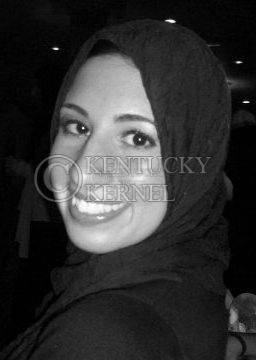‘Human shield’ in Egypt represents unity

January 21, 2011
Column by Fatimah Shalash. E-mail opinions@kykernel.com.
On the first week of 2011, thousands of Muslims in Egypt formed a mass “human shield” to protect Coptic Christians leaving churches across the country after Christmas Mass.
It had been a year since 21 worshipers were killed and 79 injured by a terrorist bombing at a Coptic church.
Last year’s bombing immediately sparked tension between Copts and Muslims and threatened a divide in Egypt.
However, under the slogan, “We either live together, or die together,” Muslims pledged solidarity against the threat of Islamic militants and strife.
They kept their promise, as thousands of Muslims gathered outside churches, held candlelight vigils and risked their lives to protect the Coptic Christian community.
Even now, more than two weeks after the event, this inspiring image lingers in my mind. It resonates deeply with all I could hope to happen here in America and across the world: That people will transcend political, social and religious lines and truly love one another.
In an ideal world, people would see that when you look past someone’s skin color, clothing and ideology, you are looking at yourself. Because when you strip all of those things away, we are all human, and we are all scared of something.
We may be scared for our national security, the economy or the future of our health care plans. Whether the fear is big or small, we often look up to our leaders to guide us. Unfortunately, the minimal amount of civil dialogue in American government reflects a sad state of affairs.
Ignorance, political agendas and “difference” have turned the people that should be working together into enemies.
As I sit back and watch the “left” and the “right” struggle back and forth, I recall the mass human shield in Egypt. One of the most powerful things about it was that the common people, not the “leaders,” were the first line of defense for religious freedom.
The Egyptian Muslims and Copts possessed courage and insight that we could learn from. They live by the words of our pledge of allegiance, “united we stand, divided we fall,” more than we do in our own nation. They show that people have as much, if not more, power than we could ever imagine and that it’s there for the taking.
While their “human shield” was a form of physical protection, it provided a perfect symbol for how we should all strive to live; to protect our fellow citizen as if they were one of our own. These acts could be simple, such as speaking up for a neighbor or a friend, welcoming foreigners in your community or place of worship or attending an interfaith dialogue.
If everyone took one step in this direction and remembered that in the end, we are all on the same side, perhaps the world would seem less scary.


























































































































































